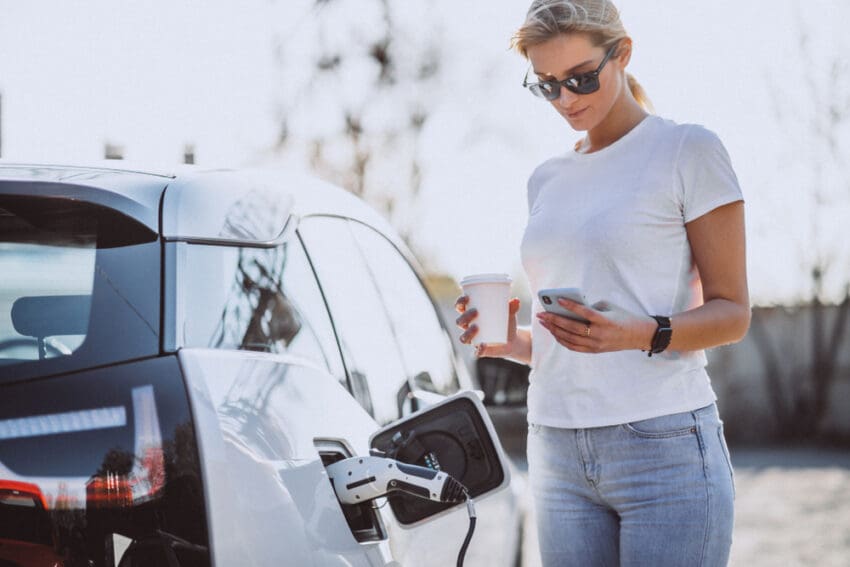Government rules out new EV grants or cutting VAT on charging
The government has been accused of ‘sleepwalking into an EV crisis’ after it rejected calls for new incentives to promote EV uptake.
Responding to the recent report from the House of Lords’ Environment and Climate Change Committee’s Electric Vehicles inquiry, the government ruled out any new plug-in vehicle grant or cutting tax on public charging. This has prompted warnings from car makers that the government is sabotaging its own efforts towards net zero.
The Lords’ reportsaid that the cost of vehicles and charging remained barriers to the wider adoption of EVs and called for the government to take steps quickly to address this. Among its key recommendations were targeted grants to help stimulate the more affordable end of the EV market. It also said the grants should remain in place until price parity with equivalent ICE cars was reached.
However, the government rejected this suggestion and said it was targeting incentives “where they have the most impact and deliver the greatest value for money”.
It said: “Government grants have been in place for over a decade to help reduce the up-front purchase price of new EVs. The Plug-in Car Grant was closed to new orders on 14 June 2022, having injected £1.5 billion in taxpayer funding to support the growth of the early electric car market.
“In June 2022, the government published a public evaluation report, which highlighted that the Plug-in Car Grant was vital in building the early market for electric vehicles. It then had less of an effect on demand than other existing price incentives, such as company car tax.
The response also claimed that grants were unnecessary as: “some external forecasts predict that some EVs could be around the same price to purchase as a petrol or diesel car by the end of the 2020s”.
It did however say it ‘noted’ recommendations to consider copying schemes in Scotland and the Netherlands which provide help in buying secondhand EVs.
Damien Dally, managing director of Fiat UK previously warned that the government was “sleepwalking into an electric vehicle crisis” and said the latest statement meant it was “now well and truly on the cusp of that crisis”.
He said: “Half a million electric and plug-in hybrid vehicles were registered during 2023, which is fantastic news. But the EV market for private buyers is in real jeopardy, accounting for fewer than one in five (18.2%) new electric cars registered in 2024.
“The government says it is targeting its incentives where they have the most impact and deliver the greatest value for money. Whilst we welcome that there is an incentive in place for electric van buyers, we know the biggest barrier to entry for a retail electric car buyer is price. Surely, then, the greatest impact would be to address this by helping to reduce the upfront cost of the car, via the reintroduction of a government grant.”
The Lords also recommended that VAT on public charging be cut to 5%, in line with domestic electricity, to make charging away from home more affordable.
The government said that such a cut would impose “additional pressure” on public finances and would not be considered.
Adrian Keen, outgoing CEO of Instavolt warned that the stance was “fundamentally wrong” and penalised drivers who don’t have access to off-street charging.
The government response also dismissed the call for all motorway services to have EV charging ‘totem signs’ providing information on the location and availability of chargers. It said that there was already provision for motorway signs to show if a location had chargers and that drivers could use online apps and mapping services to locate nearby devices.
And it said it would not extend the On-Street Residential Chargepoint Scheme (ORCS) or look into ensuring a ‘right to charge’ for tenants or extend the charger grant for landlords and tenants, which is due to end in March 2025.
The government did agree with some of the report’s recommendations, including the need for it to take a leading role in providing clear and balanced information on EVs and tackling misinformation.
It also said it was looking at removing obstacles to infrastructure roll-out, including giving chargepoint operators the right to carry out street works using a permit, rather than a licence, alongside a number of other changes to planning rules.
“If implemented, these recommendations would help people to adopt EVs and ensure a smoother journey towards net zero. Peers will keep urging the government to do more, as otherwise the EV revolution is a non-starter.”
